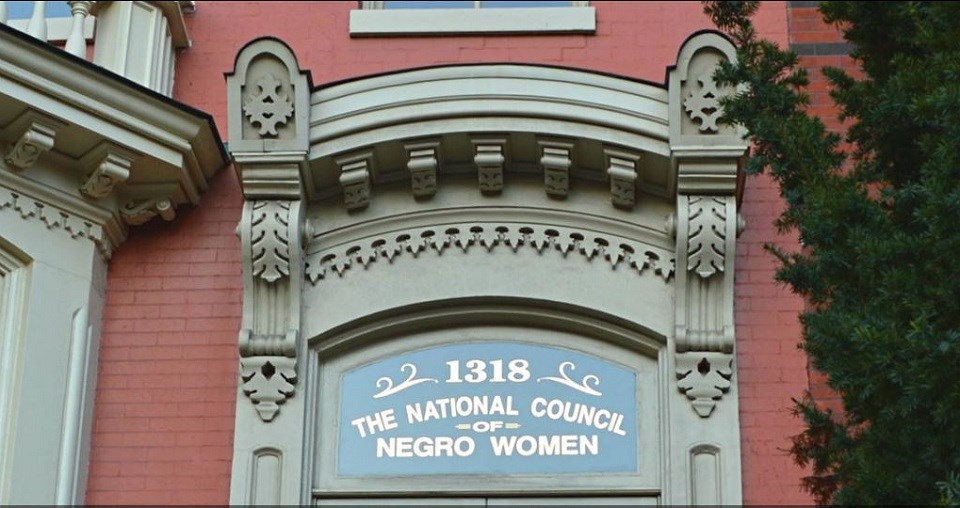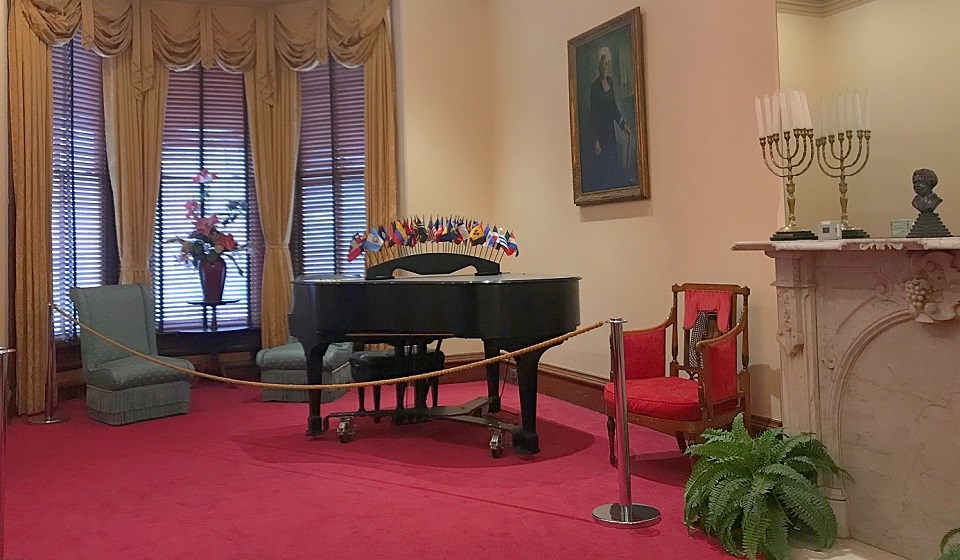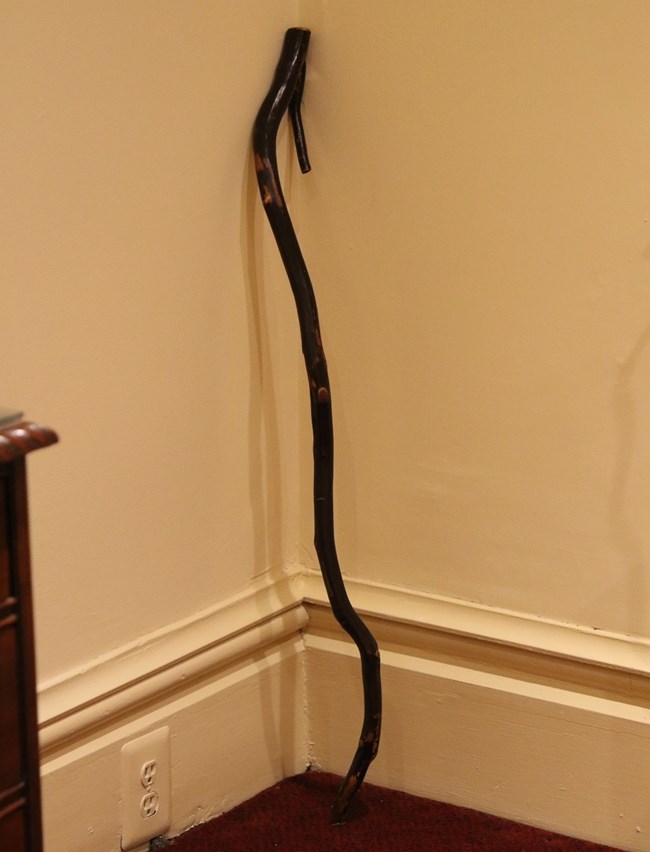Article
National Park Getaway: Mary McLeod Bethune Council House National Historic Site

Left image
Around the table in the council room, the NCNW hosted heads of state, international guests, and conducted hundreds of planning meetings to further the Civil Rights Movement.
Credit: (Education Department Meeting 1954 / NPS Collections)
Right image
Take your place around the table today while exploring the legacy of those who once gathered around it.
Credit: (NPS Photo)

NPS Photo
By the time Bethune moved to Washington, DC, in the 1930s, she already had an impressive list of awards, honorary degrees, and leadership roles in many organizations focused on improving interests of community, business, youth, education, women, race relations, and politics. Bethune’s crowning achievement was the creation of the National Council of Negro Women (NCNW) in 1935. Described as “an organization of organizations,” the NCNW united member organizations to educate, encourage, and effect the participation of African American women in civic, political, economic, and educational activities and to plan, initiate, and carry out projects that further civil rights. The NCNW attracted membership from other African American women’s organizations as well as religious groups, regional clubs, sororities, and masonic organizations.
Bethune established the headquarters of the NCNW at 1318 Vermont Avenue NW in 1943. In addition to being located in a racially-mixed community of professionals and middle-class businesspeople, the headquarters was only one mile from the Capitol Building and White House. Locating the headquarters in Washington, DC, reflected the NCNW’s national focus. Within these walls, the organization was influential in desegregating DC restaurants and theaters, improving health care and housing conditions for African Americans, and integrating African Americans into public schools and the US military.

NPS Photo
Each room throughout the house tells a story of the people who lived or visited within its walls. Many prominent visitors were received in the parlor, including including First Lady Eleanor Roosevelt, activist Mary Church Terrell, and United Nations delegates from around the world. Bethune was often a guest herself to many prominent homes, including the White House, and a valued advisor to national and international leaders. Among her many achievements, she became the first African American woman to serve as a division head in federal office with the National Youth Administration, was the only African American woman at the first meeting of the United Nations, and was successful in integrating African American women into the Women’s Army Corps (WACS).
The board room adjacent to the parlor hosted meetings of many great minds and leading figures in the advancement of civil rights and social change. The large mahogany table and chairs were donated from the US Capitol by Chicago's Congressman William L. Dawson at her request. Critical civil rights meetings were planned around the table, which included some meetings relating to the March on Washington for Jobs and Freedom of 1963.

NPS Photo
Inspired by Dr. Carter G. Woodson, her friend and colleague who is often referred to as the “Father of Black History,” Bethune was interested in establishing a National Archives for Negro Women’s History. African American women were encouraged to send letters, photos, and histories to the archives so they could have a voice in telling their own stories to future generations. Following through on Bethune’s vision, the NCNW formally created an archives, the National Archives for Black Women’s History, which opened in 1979. The archive collections were stored on site for many years until they were moved to the NPS Museum Research Center where they are stored in a state-of-the-art facility equipped with climate and humidity controls and proper security. The archives are available for researchers by appointment.
Next time you are in the Logan Circle neighborhood of DC, ring the doorbell or knock on the door of the Bethune Council House to explore her lasting legacy of power of education, political activism, and civil service to achieve racial and gender equality throughout the United States and the world. Stop by the Carter G. Woodson Home National Historic Site, less than a 15-minute walk away. Both sites are open Thursday, Friday and Saturday. Or explore the other sites of National Capital Parks-East and the greater Washington DC area.
Tags
- mary mcleod bethune council house national historic site
- national park getaways
- dc
- dc history
- mary mcleod bethune
- african americans
- civil rights
- reconstruction
- desegregation
- americas stories
- urban parks
- womens history
- district of columbia
- women leaders
- african american women
- shaping the political landscape
- women and education
- women in government
Last updated: July 17, 2020
